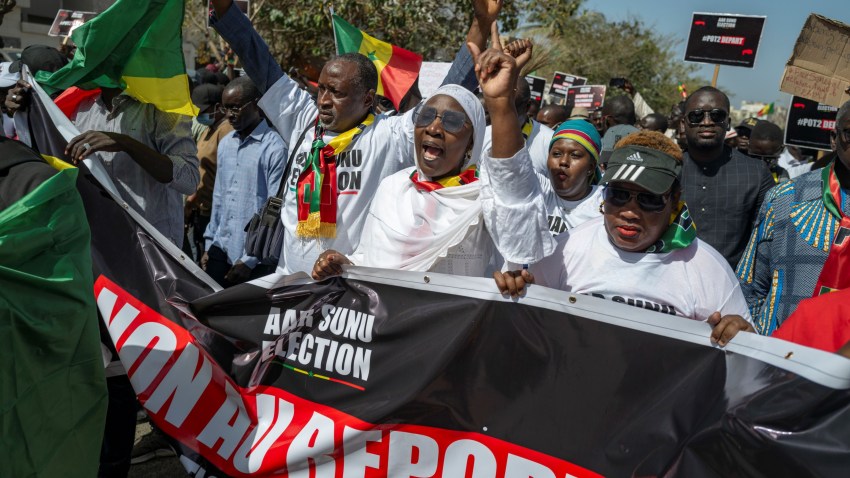DAKAR, Senegal—Senegalese President Macky Sall announced Friday that he would comply with an order from the Constitutional Council to conduct the country’s presidential election as soon as possible, after the council ruled that his decision on Feb. 3 to delay the polls until December was unconstitutional. The ruling, and Sall’s compliance with it, followed more than a week of protests and pressure from the country’s political opposition and civil society groups, both at home and abroad. It represents the latest close call for Senegal’s democracy, which has significantly eroded under Sall during his 12 years in office.
Sall’s initial announcement postponing the election came as a painful and shocking blow to Senegalese citizens across the country and among diaspora communities around the world. After repeated episodes of violent and even deadly crackdowns on political protests since 2021, the country had experienced a relative calm since last July, when Sall solemnly declared that he would not seek a constitutionally prohibited third term, as many had feared. The selection of a candidate to represent his ruling coalition, BBY, proved challenging due to internal rivalries among those with ambitions of becoming the next head of state, forcing Sall to ultimately choose his preferred successor, Prime Minister Amadou Ba.
Still, seven months after his July declaration, the electoral process was seemingly following its scheduled course. The parrainage—or sponsorship campaign—was completed, though not without major controversies, including a long delay in fairly distributing electoral forms to opposition parties; technical-related bugs in some USB keys that contained the necessary signatures; and lost records, mainly belonging to opposition parties. In the end, 20 candidates—a record—emerged out of the 93 that had thrown their hats in the ring for the election scheduled to take place Feb. 25. But on Jan. 20, when the Constitutional Council announced the final list, it had removed two candidates for holding dual nationality, which is disqualifying for someone seeking the presidency. The most prominent of them was Karim Wade, the son of former president Abdoulaye Wade, who went on to accuse the court of bias in the decision, prompting parliament to establish a commission to investigate the charges.

